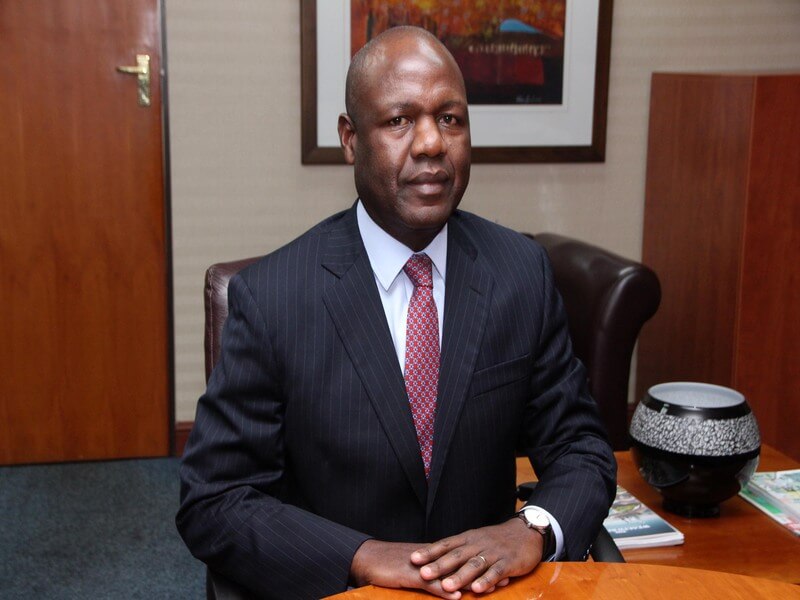It was the year 2018 and the FBC Group had just ended their annual strategy conference FBC. The team was excited about the journey ahead, having resolved to begin a transformation process that would take the Group to a new position in the global marketplace. (Pictured: Webster Rusere, Managing Director of FBC Bank)
Having initially commenced operations in 1997 as First Banking Corporation Limited, the entity has evolved from being one of the first locally owned commercial banks in Zimbabwe to becoming FBC Bank- one of the leading financial institutions in the country to-date. The bank is part of FBC Holdings, which also incorporates FBC Building Society, FBC Insurance, FBC Reinsurance, FBC Securities and Microplan which is a microfinance entity.
The world as we know it is changing at such a rapid pace and large established corporate entities are faced with the reality of stiff competition emanating from new and smaller start-ups, which possess a vastly different, energy infused, agile mind set. In addition to this dynamism in the operating environment, the COVID 19 pandemic erupted towards the end of 2019, galvanising companies into either quickly adapting to the “New Normal” or risking extinction. Many companies fell into the latter category and were forced to contract their operations abruptly and indefinitely. Fortunately for the FBC group, the process of transforming the organisation had already commenced in the previous year, thus giving it the platform to have the desired impact.
FBC of the Future
FBC Group has long understood that to survive in the new world order of digital transformation and innovation, it was imperative that they take the necessary steps to “future-fit” the organisation. Strategic initiatives were put in place to begin the transformation process. In line with the new digital thrust of the Group, FBC created a new Vision/Mission/Promise and a set of Business Principles. This venture was a key driver in beginning the communication exercise in positioning the brand of the “FBC of the Future”. The new Vision and Mission statements are as follows:
1. Vision Statement
Nurture sustainable solutions that enable the financial well-being of the communities we serve
2. Mission Statement
Deliver a unique customer experience through value adding relationships, simplified processes and relevant technologies.
3. Our Promise
You Matter Most
Employees, customers and other stakeholders were involved in the co-creation of the transformation and accompanying artefacts, an approach which has instilled a sense of ownership and palpable involvement. For a digital business to become well established and to truly embrace “digital”, the new Vision/Mission statement is underpinned by a set of business principles which are the guardrails for effective decision making within the “FBC of the Future”. The principles ensure that the digital DNA pervades the entire business’ decision-making process and way of working, such as being ‘insights-driven’, ‘customer-obsessed’, ‘lowering the cost to serve’, ‘driving simplicity’ and consistently disrupting the status quo. More importantly we co-created these principles and are now making a consistent effort to ingrain it into our way of working.
FBC embarked on a radical shift in its project management approach by adopting the agile methodology in line with modern global trends. Projects are now implemented through collaborative, cross-functional project teams whilst ensuring consistent alignment to the new FBC principles. FBC applies design outside-in thinking in the design of its products and services, involving customers to ensure ‘product of one’ and ‘customer obsession’ principles are fulfilled amongst others. With an internal fintech capability, FBC collaboratively develops products in an iterative fashion, with speed, ahead of competition.
FBC Digital App
FBC has launched a digital insurance and account opening app that allows customers to digitally insure and license vehicles as well as open different types of bank accounts instantly using one application. This single app allows access to different products and services, from banking to insurance, from one touch point, consistent with the “Product of One” business principle.
The application enables end-to-end full KYC account opening in less than 5 minutes after autonomously doing an API-based background check process, including identity, in real time. At the same time, the bank has launched a digital assistant named Noku, which supports and interacts with clients using the Whatsapp platform.
So in essence, FBC has enabled digital account opening through 3 different platforms:
- Unstructured Supplementary Service Data(USSD) for KYC-lite wallet and account
- Whatsapp banking for KYC-lite wallet and account
- IOS and Google Playstore – for full KYC account
By enabling customers to open accounts on the different platforms, FBC Bank has enabled all segments, including the base of the pyramid, to access financial services easily, thereby accelerating financial inclusion.
FBC has brought within its leadership and management structures, digitally competent team members to drive the digitisation agenda. It has established a fintech company, Xarani, to spearhead the digital transformation and innovation drive within the FBC Group. This fintech team houses capabilities which cover technology and development; innovation; change management; and scrum teams. Innovation and entrepreneurship are now integral parts of the transformation journey that will enable FBC Bank to compete in a world characterised by vulnerability, uncertainty, complexity and ambiguity. The bank is now geared to embrace and implement new ideas with agility, speed and scale.
FBC Approach
FBC has adopted an ecosystem approach to improve value creation through internal and external synergies.’ Co-opetition aptly describes its nuance to competition which also includes cooperation where value can be created with competitors. A data and insights function has been established and it is entrenching a data and analytics culture in decision-making ahead of hierarchy and other non-scientific factors. Critically, data lies on FBC’s indirect monetisation frontier as competitive pressure on traditional business escalates.
To ensure end to end support for all clients that on-board virtually FBC has established “FBC Virtual” which is among other things, also responsible for the following:
- Operational and risk management
- Anti-Money Laundering(AML)
- Know-Your-Customer(KYC)
- Business development – Cross and Upselling to the digital customer Relationship Management
- Product & Client Support for clients utilizing our digital transformation platforms.
- Distribution of physical products to clients who opt for delivery (e.g cards delivery & PIN issuance through POS)
Support and Customer Experience
Once a customer has been successfully on-boarded, they receive on-going service support from the Customer Experience and 24-hour Contact Centre. The bank has made a concerted push to enhance the Marketing Department by establishing a fully-fledged Digital Marketing wing within the Group’s Marketing division. The marketing investment is now strongly metrics-based in line with their ‘insights-driven’ business principle. They strongly believe in engagement and building an interactive community of customers and other stakeholders. FBC’s engagement metrics have grown exponentially across all digital channels, with its digital advert engagement ratio being 0.66% against the global benchmark of 0.15% whilst their click to conversion ratio for 2020 has been 2.14% versus the world average of 1%. FBC participated in the worldwide lockdown-inspired #JerusalemaChallenge which incorporated elements of its re-positioning and digitalisation. Some of the digital marketing initiatives that have been used include the following:
a) A Brand Lift strategy aimed at increasing interaction with the brand on social media through paid social media strategies to shift customer awareness and perception of the brand, thus increasing conversions and adoption of their banking products in a competitive digital landscape.
b) Google Display Advertising – The bank has leveraged the Google ads platform to reach contextually relevant customers using key words to increase top of mind awareness of FBC’s digital products and resultantly, increasing our share of voice compared to competitors.
c) Google Search – The bank implemented a Google paid search strategy to outrank competitors for keywords searches relevant to digital banking search terms and appears on top of search results for queries relevant to their digital banking products.
Digital Strategy
FBC’s financial inclusion strategy is encapsulated in the new vision statement which aspires to ‘nurture sustainable solutions that enable the financial well-being of the communities we serve’. Operating in a developing African economy where 70% of the population is rural and low-income, there is much work which is required to uplift the
lives of the majority.
FBC has enabled a wallet and low- KYC account bank account on the USSD platform which allows every Zimbabwean with a basic feature phone to open a bank account remotely from anywhere within Zimbabwe. Zimbabwe has extensive mobile network coverage and the feature phone penetration is high, covering previously marginalised sections of society in remote rural communities. Their USSD account opening platform allows previously excluded communities to open a formal bank account and transact easily and instantly without having to travel to urban centres.
FBC has a deliberate solutionist and data-driven strategy that is geared towards financially including the base-of-the pyramid beyond payments in support of the United Nations’ sustainable development goals (SDGs). A collaborative ecosystem approach underlies FBC’s approach in working with banks, fintechs, vendors and other regulators in creating value.
John Mushayavanhu, the FBC Group CE summed it up perfectly. “Winning the Digital Banker Africa 2021 Awards is a fitting testimony to the transformation journey that FBC has embarked on. Having won numerous other awards in the past year, FBC Bank and other business units are poised to become true trailblazers in the digitalisation and
innovation space.”



